With shortening attention spans, specifically on the mobile device, appreneurs are struggling to get more mind space. In the fight for survival, one can see app ideas moving towards offering a service along with the native app.
Think Uber, an online-offline app experience or Postmates that also fulfils the customers needs offline.
Is this what apps need to do to stay relevant in the future? We asked 7 professionals that have a background in this industry to share their opinions.
#1 Service-based apps have a long way to go
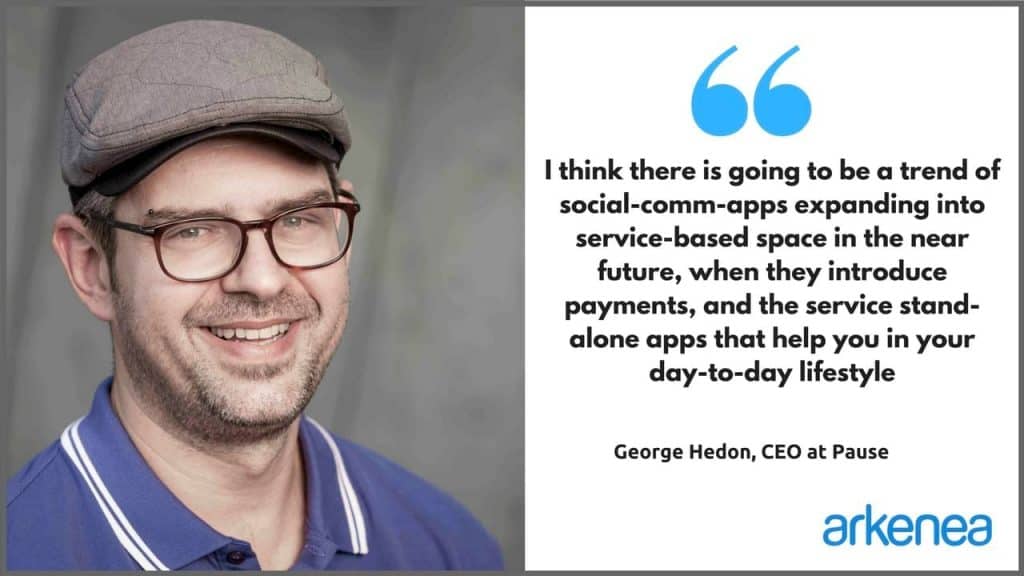
George Hedon, CEO at Pause
If you look at the reports on how many apps people use daily (1-5), weekly (6-10) and monthly (11-20) it’s quite obvious that our capacity is to focus on fewer apps rather than many. Therefore, I think we are still in the communication app space and the service-based apps will play a big part of that eco-system much like in WeChat.
On demand apps like Uber have expanded into UberEats, so what’s stopping Snap in expanding into fashion delivery service that takes a photo of the user with the new unique branded filter upon delivery.
I think there is going to be a trend of social-comm-apps expanding into service-based space in the near future, when they introduce payments, and the service stand-alone apps that help you in your day-to-day lifestyle will try to find a way to your first home screen by constantly expanding their offering.
In the attention economy, everyone will compete to keep users on their platforms through a variety of different services or even offering/copying the same service the way it’s currently going down in the social app space.
#2 Other industries are not going to decline in mobile apps
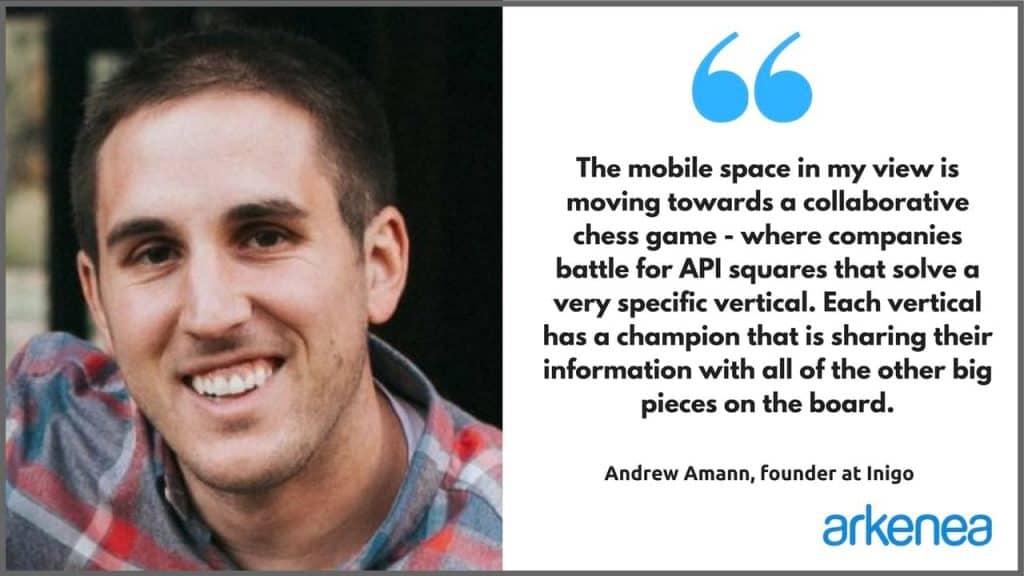
Andrew Amann, founder at Inigo App
The mobile space in my view is moving towards a collaborative chess game – where companies battle for API squares that solve a very specific vertical.
Each vertical has a champion that is sharing their information with all of the other big pieces on the board. You will see Trello data in Slack channels or Zendesk in Salesforce and the employees are viewing the system as a unified solution.
These SaaS companies are paving the way for technology to break out of Silicon Valley and into every day businesses. It is feasible to pitch that a car mechanic should use Trello or a call center to schedule their time in Harvest. As more companies focus on efficiency and productivity SaaS becomes an excellent solution but it is only a solution if the API can share its data with other SaaS companies.
I do not think that other industries are going to decline in the mobile app space – but I do think that we are going to see more mobile applications becoming successful as the “Trello for Mechanics” or “Asana for Zoos.” Hey, as long as I can see the updates in Slack, and they have a free trial – I would give it a try!
#3 In long run, we will avail more services using mobile devices but not using apps

Jnanadarshan Nayak, business analyst at TCS and Digital Marketing Blogger
Smartphones are increasingly being used to avail services that previously were only available through previous interactions or references. For example household services like plumbing, painting has started moving online. The trend started with services that are easier to avail online like travel booking, movies or banking services and now is spreading to other services.
If you ask me about current situation the answer will be “Yes”, the mobile space is bringing more and more service based apps. But my long term view is different. I believe we will avail more services using mobile devices but not using apps.
Apparently, there is a limit on how many apps any user is willing to install for a service. Let’s take travel booking in India for example. There are five or six well known booking services available. Is it possible to install all of them and check for the best deal? I believe the answer is no. So the answer lies in platforms like Facebook Messenger, Google Assistant and Amazon Alexa/Echo.
Suppose I want to fly from Mumbai to Delhi, instead of scouting each app for the best deal, I can just ask Google Assistant to find the cheapest flight for the said route on a particular date. Google will find the cheapest deal across services and then I can complete my transaction from within the assistant.
This will make the job for service providers a lot easier also. Instead of creating and maintaining many different versions of the app for all platforms and devices they can just integrate with as AI assistant and make use of the universal platform.
Instead of opening Ola and Uber one at a time, I can just open Google Maps and find the nearest cab across platforms. App developers will resist the change because a move away from apps will limit the access to user data and they will have to give some incentive to platform owners, but ultimately it’s the decision of the consumer. AI assistants will learn the personal preferences and get better over time, which will bring pull new users.
The answer is “If I can use one AI platform to access services across service provider, why will I install multiple apps?” The platforms are new and nascent but they will dominate the service ecosystem in the near future.
#4 A subscription based business model is more trending
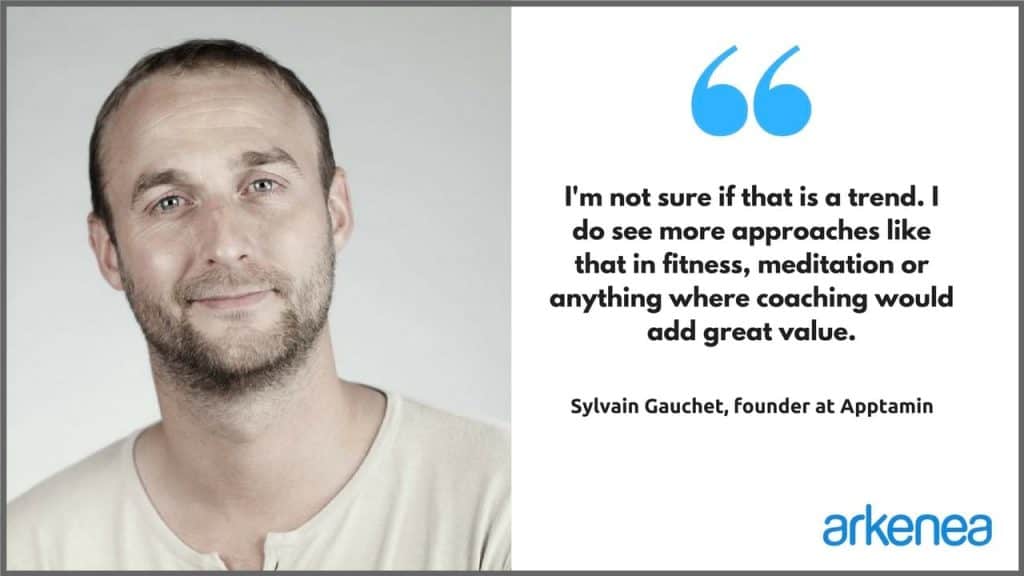
Sylvain Gauchet, founder at Apptamin
To be honest, I’m not sure if that is a trend. I do see more approaches like that in fitness, meditation or anything where coaching would add great value. It does also help to move to a subscription based business model (which Apple has been pushing more).
#5 People have greater expectations and thus is the drive of service based apps
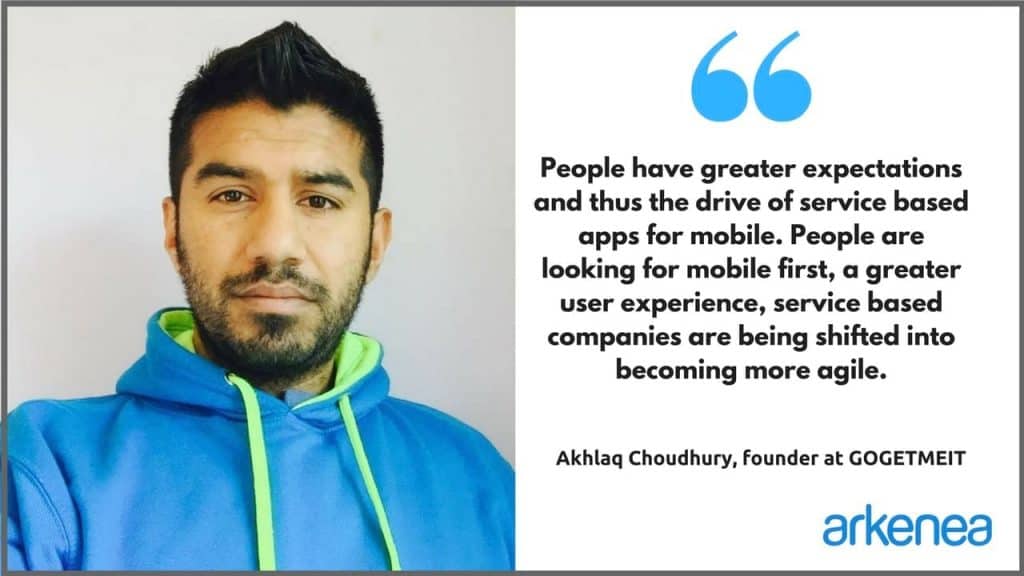
Akhlaq Choudhury, founder at GOGETMEIT
Looking back at how the digital journey as evolved gives us some great insight on how the mobile space has gone full circle. There seems to be a split in the types of customers and the behaviors and how they utilize their mobile devices and apps.
I like to look into my customers demographic before building apps, but as the rise of the millennials who have been brought up with ability to access information and services easily and quickly they don’t have the patience to look at the big old yellow book or wait for someone to deliver a service to them.
This is why the likes of Deliveroo, Gogetmeit, Uber and many other service based apps work so well. The tide is shifting, people have greater expectations and thus the drive of service based apps for mobile.
People are looking for mobile first, a greater user experience, service based companies are being shifted into becoming more agile and mobile to accommodate the new wave of customers.
#6 The trend is universal and not specific to service-based apps
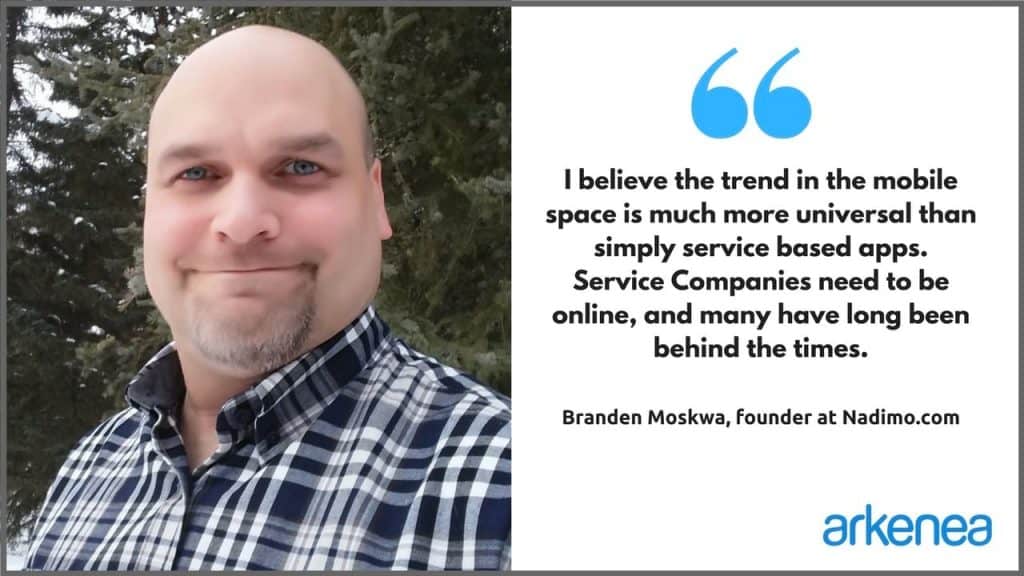
Branden Moskwa, founder at Nadimo.com
I believe the trend in the mobile space is much more universal than simply service based apps. Service Companies need to be online, and many have long been behind the times.
With that in mind, I think there will be a movement much like in the dawn of eCommerce where the service sector moves first towards online marketplace type solutions to sell services and take bookings, then towards a mobile first website development and App Development.
Businesses will start to move away from a mobile first mentality to a Mobile only concept and done so without the need to download an app, but rather have it delivered directly through the mobile browsers. That said, there is certainly a trend in the service-based apps sector, and noticeable successes have come from this approach.
#7 Service-based apps are simplifying living for humans
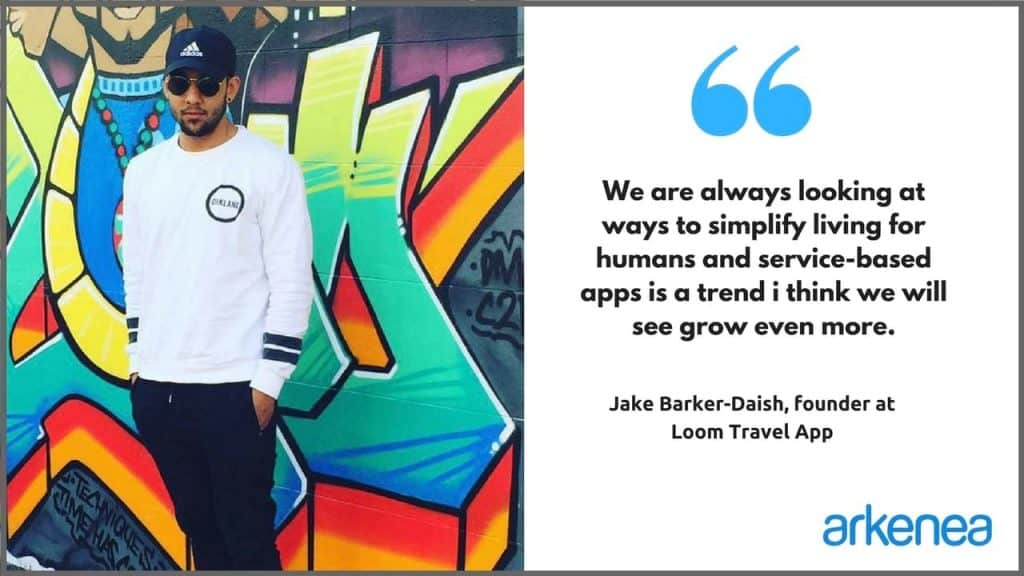
Jake Barker-Daish, founder at Loom Travel App
I believe we are turning a corner in the mobile space where service-based apps are becoming very common. We are always looking at ways to simplify living for humans and service-based apps is a trend i think we will see grow even more.
